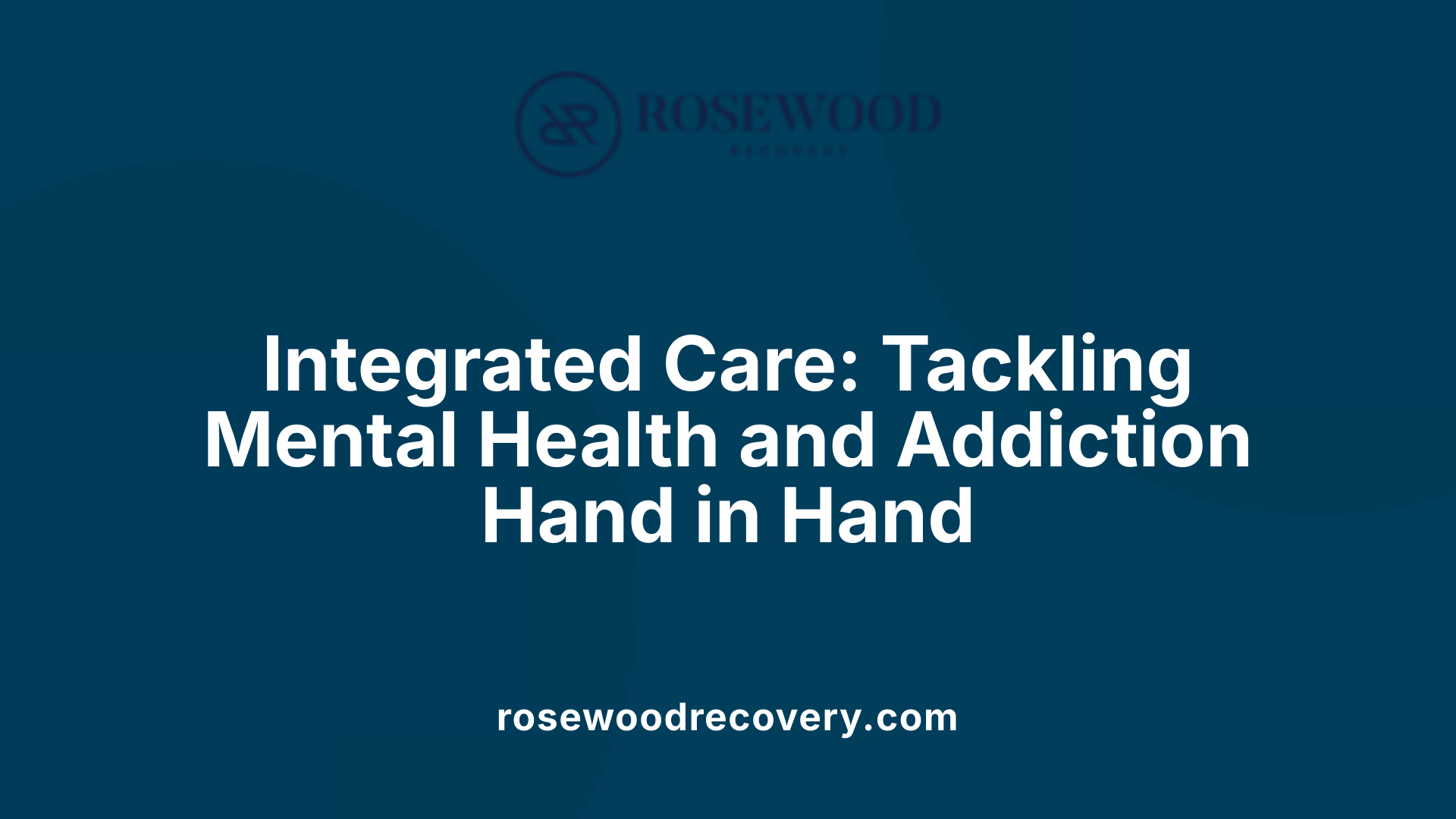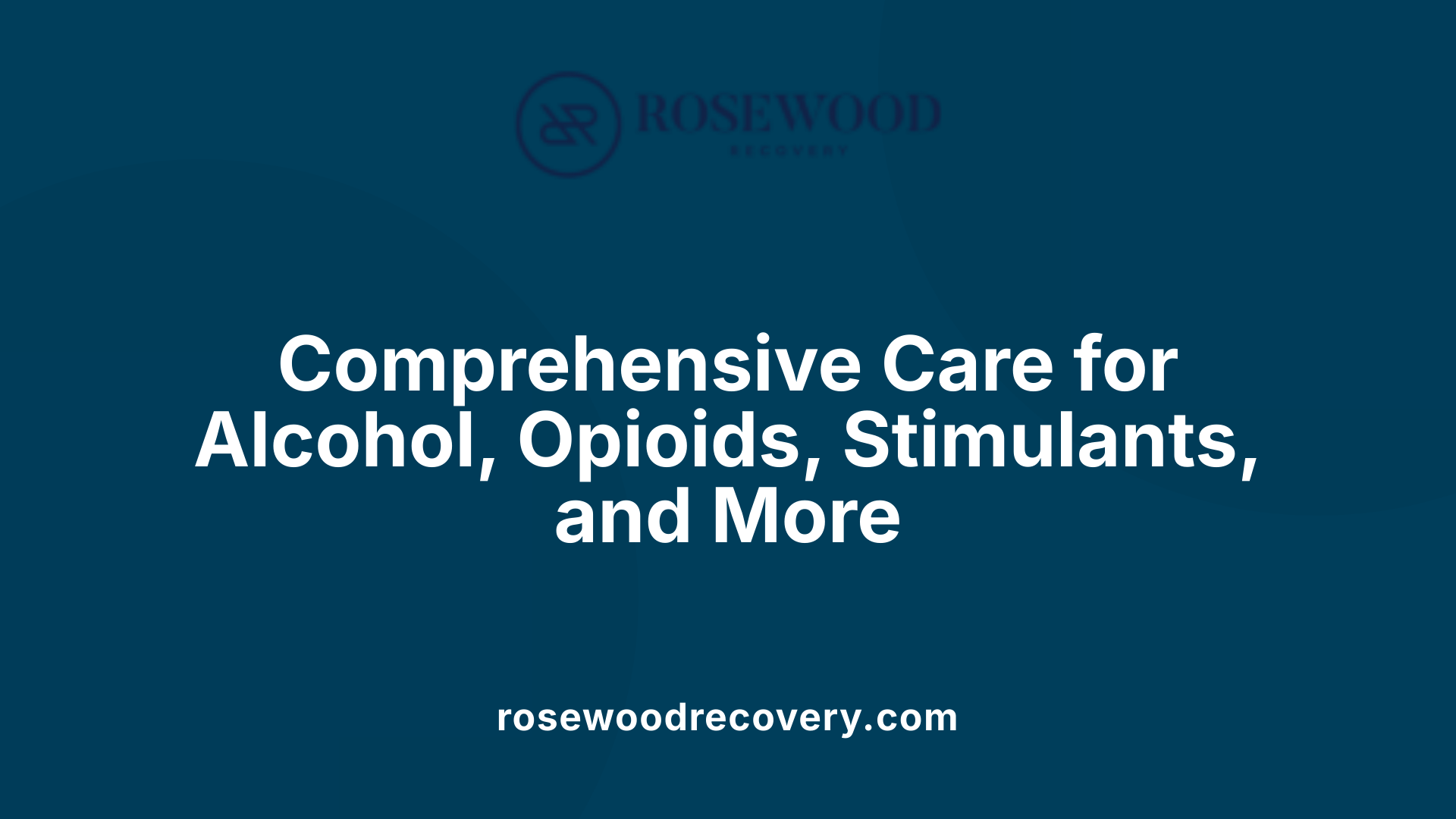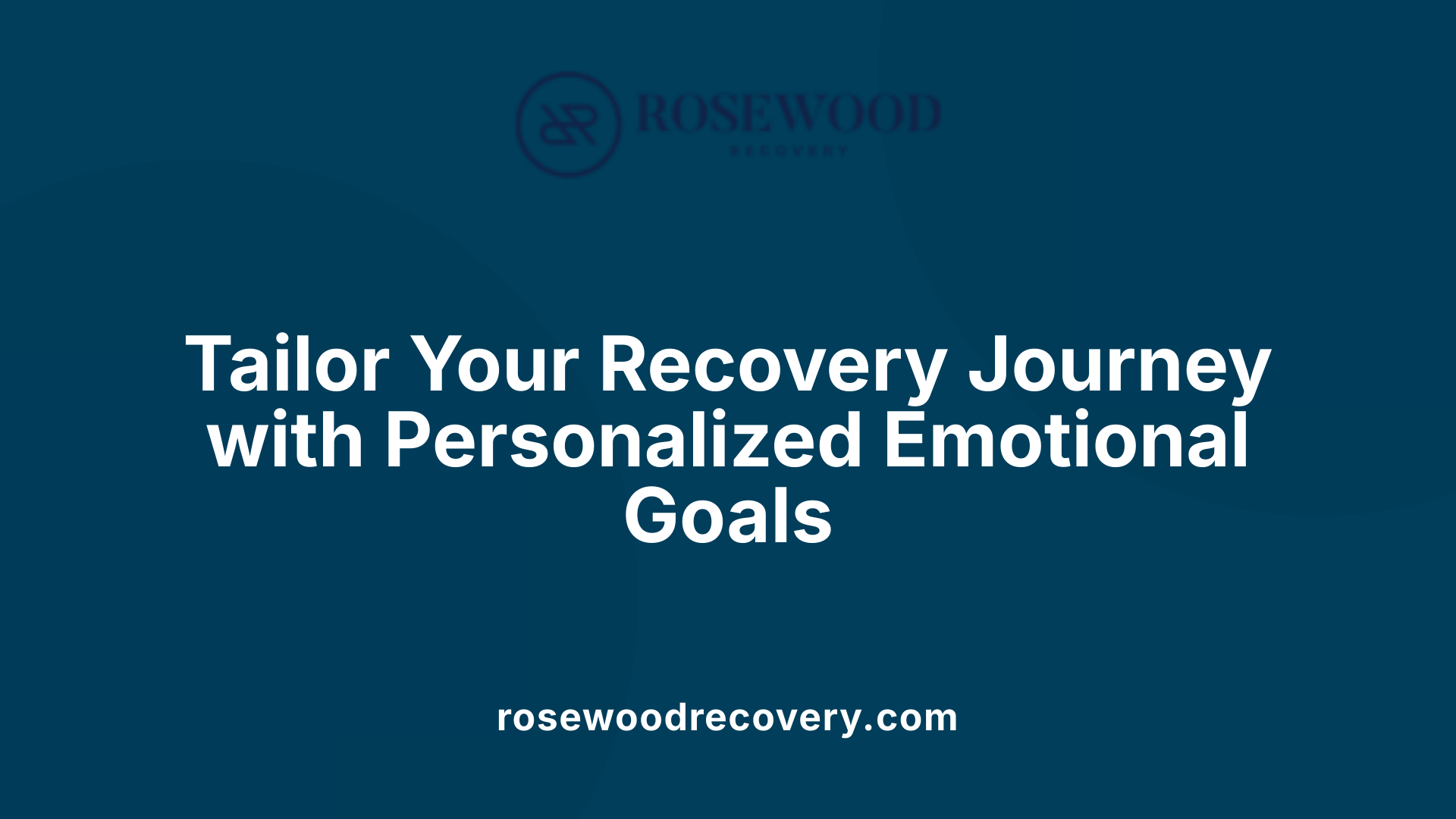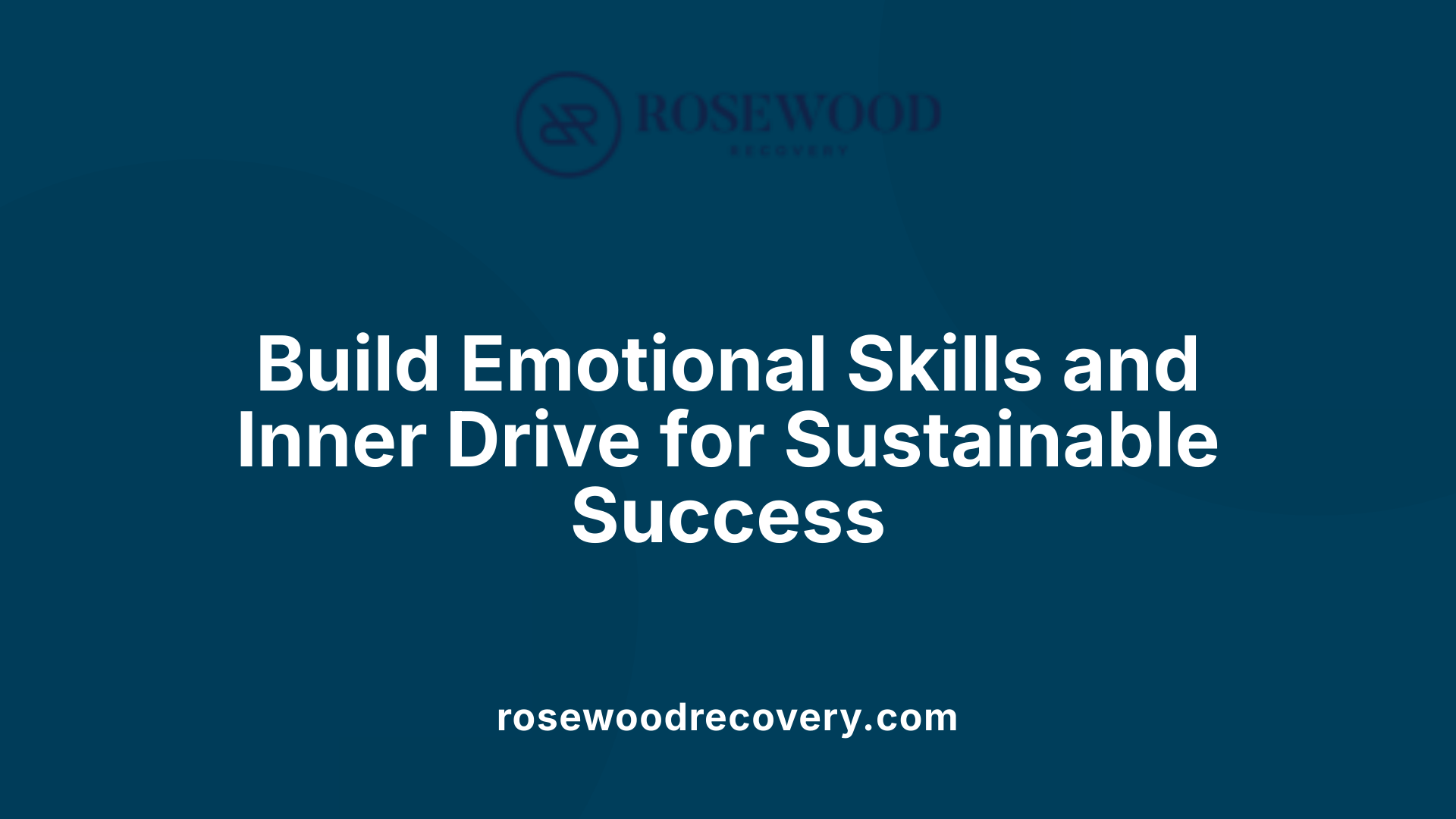Understanding the Importance of Emotional Goals in Comprehensive Treatment
Creating emotional goals within treatment programs for substance abuse and mental health issues is increasingly recognized as essential for fostering sustained recovery. Emotional goals help structure the healing process by supporting motivation, resilience, and mental well-being, ultimately facilitating a meaningful, addiction-free life. This article explores the multifaceted benefits of incorporating emotional objectives in treatment plans, the role of mental health integration, and how personalized goal setting enhances recovery outcomes across various forms of addiction.
Comprehensive Treatment Services for Substance Abuse and Mental Health
What types of treatment services are available for substance abuse?
Comprehensive treatment for substance abuse includes a broad spectrum of services designed to meet individual needs. These encompass detoxification processes to manage withdrawal symptoms safely, individual and group therapy sessions for psychological support, medication-assisted treatments for certain dependencies, and diverse counseling approaches. Services are tailored through various care settings such as residential treatment facilities offering intensive support, outpatient programs that maintain daily life balance, and crisis interventions to address emergencies. Programs like those supported by SAMHSA encourage prevention and recovery by employing evidence-based strategies and peer support networks.
How are medical and psychological approaches integrated?
Treatment combines medical and psychological methods to address both physical addiction and mental health challenges. Medication-assisted treatment helps reduce cravings and withdrawal symptoms, while therapies such as Cognitive Behavioral Therapy (CBT) and Dialectical Behavior Therapy (DBT) manage emotional regulation and mental wellness. Holistic care integrates mindfulness, physical activity, and nutritional guidance, fostering overall well-being. Addressing co-occurring disorders like anxiety and depression simultaneously ensures comprehensive care that tackles all aspects of a person's recovery journey.
What role do counseling and peer support play?
Counseling offers individualized attention in identifying triggers, developing coping strategies, and setting realistic goals that promote motivation and sustained recovery. Group therapy and support groups create community, reduce isolation, and provide a platform for shared experiences and mutual encouragement. Peer support specialists enhance treatment retention by fostering relatable guidance and accountability, helping individuals navigate challenges and celebrate progress.
What specialty programs are available?
Specialty programs address the unique needs of individuals with co-occurring disorders such as trauma, PTSD, or eating disorders. These programs provide targeted interventions and therapies tailored to complex cases. Additionally, some treatment centers offer programs focusing on relapse prevention, early intervention, and emotional intelligence development. Virtual services, like those from Charlie Health, extend professional mental health support through goal setting and progress tracking, making care more accessible.
| Component | Description | Benefit |
|---|---|---|
| Detoxification | Medically supervised withdrawal management | Safely reduces physical dependence |
| Therapy (CBT, DBT) | Psychological treatments focusing on behavior and emotion regulation | Addresses mental health and reduces relapse risk |
| Medication-Assisted Treatment | Use of FDA-approved medications for addiction treatment | Decreases cravings, supports abstinence |
| Peer Support | Support from individuals with lived experience | Builds community and accountability |
| Specialty Programs | Focused care for co-occurring disorders or trauma | Tailored approaches improve recovery outcomes |
| Telehealth Services | Remote delivery of counseling and mental health support | Increases access and convenience |
Addressing Co-Occurring Mental Health Issues in Addiction Treatment

How do treatment services address co-occurring mental health issues and addiction?
Treatment for co-occurring mental health disorders and addiction is best approached through integrated care models. These models simultaneously address both mental health and substance use disorders in a coordinated and comprehensive manner, ensuring no condition is treated in isolation. Multidisciplinary teams made up of psychiatrists, counselors, therapists, social workers, and medical professionals collaborate to provide holistic support tailored to each individual's needs.
Evidence-based therapies form the foundation of integrated treatment. Cognitive Behavioral Therapy (CBT) is widely used to help clients recognize and modify negative thought patterns and behaviors related to both addiction and mental health symptoms. Other therapeutic approaches include Dialectical Behavior Therapy (DBT), motivational interviewing, and family therapy. When appropriate, medication management is incorporated to stabilize psychiatric symptoms such as anxiety, depression, or bipolar disorder, enhancing the effectiveness of therapy.
Early screening and assessment are crucial components, allowing clinicians to identify co-occurring conditions promptly. This ensures timely initiation of comprehensive care plans that address all aspects of an individual's health, reducing the risk of overlooked disorders that could undermine recovery.
At the policy level, initiatives such as the Mental Health Parity Act have improved access to integrated services. Increased funding and reforms encourage service models that combine behavioral health and addiction treatment under one umbrella. This integration not only streamlines patient care but also improves overall outcomes, including decreased substance use, fewer psychiatric hospitalizations, and better quality of life.
By blending clinical expertise, comprehensive assessment, evidence-based therapy, and supportive policies, treatment services effectively target both addiction and co-occurring mental health challenges to promote sustained recovery.
Common Forms of Addiction Treated Through Comprehensive Services

What forms of addiction are commonly treated through comprehensive services?
Comprehensive addiction treatment programs address a wide range of substance use disorders and behavioral addictions. Commonly treated substance use disorders include alcohol, opioids, stimulants, and nicotine addictions. These programs offer multiple levels of care, such as detoxification, inpatient or residential treatment, outpatient programs, and partial hospitalization. The choice of level depends on the severity of the addiction and the individual's specific needs.
Behavioral addictions, like gambling and technology addiction, are also increasingly recognized and treated through comprehensive services. Treatment includes counseling, behavioral therapies, and support groups designed to help individuals understand and modify addictive behaviors.
What therapy and medication approaches are used?
Treatment includes evidence-based therapies such as Cognitive Behavioral Therapy (CBT) and Dialectical Behavior Therapy (DBT), which address underlying emotional and behavioral issues. Medication-assisted treatment (MAT) plays a significant role for opioid and alcohol dependencies by combining medications with behavioral interventions to reduce cravings and prevent relapse.
How is treatment individualized?
Programs tailor care plans to each individual's condition, strengths, and recovery goals. Personalized interventions might involve therapy for co-occurring mental health disorders, emotional regulation training, and support groups. This individualized care helps build a strong foundation for sustained recovery.
| Addiction Type | Treatment Approaches | Description |
|---|---|---|
| Alcohol Use Disorder | MAT, CBT, inpatient/outpatient care | Combines medication and therapy to reduce drinking and prevent relapse |
| Opioid Use Disorder | MAT, detox, behavioral therapy | Uses medications like methadone or buprenorphine alongside counseling |
| Stimulant Addiction | Behavioral therapies, support groups | Focuses on managing cravings and developing coping strategies |
| Nicotine Addiction | Nicotine replacement, counseling | Combines medications and counseling to support quitting |
| Gambling Addiction | CBT, support groups | Addresses behavioral patterns and impulse control |
| Technology Addiction | Counseling, behavior modification | Helps modify use patterns and underlying emotional triggers |
This comprehensive, integrated approach increases the chances of successful recovery by addressing the medical, psychological, and social factors involved in addiction.
The Role of Emotional Regulation and Mental Health Support in Recovery
Why is emotional regulation important in addiction treatment?
Emotional regulation is crucial because many individuals with substance use disorders often use substances to manage overwhelming emotions. Poor emotional regulation skills increase susceptibility to addiction; research shows that about 75% of addiction cases involve emotional dysregulation. Addressing this allows individuals to manage their feelings more effectively, which reduces the risk of relapse and supports sustained recovery.
What techniques help with emotional regulation in recovery?
Several proven techniques assist individuals in managing their emotions:
- Mindfulness practices like meditation and deep-breathing exercises increase emotional awareness and control.
- Cognitive Behavioral Therapy (CBT) supports recognizing triggers and developing healthier thought patterns.
- Dialectical Behavior Therapy (DBT) helps clients build coping skills and manage intense feelings. These approaches foster emotional resilience, enabling recovery participants to handle stress and cravings without turning to substances.
How does emotional dysregulation relate to addiction?
Emotional dysregulation can drive substance use as a maladaptive coping strategy. Without proper support, these emotional challenges often perpetuate addiction cycles. Integrating therapies that target emotional control breaks this cycle, promoting healthier responses to stress and emotional triggers.
Which coping strategies enhance recovery?
Practical coping strategies include:
- Deep breathing exercises
- Journaling to process emotions
- Engaging in physical activity
- Seeking social support networks These methods build emotional strength and help maintain sobriety during challenging moments.
How is mental health support integrated into addiction treatment?
Holistic recovery plans combine mental health services with addiction treatment. This integration addresses both psychological and physical aspects of addiction. Therapy sessions, support groups, and mindfulness practices work together to enhance emotional regulation, promote self-awareness, and rebuild a positive self-image. Mental health support strengthens motivation, provides coping mechanisms, and fosters resilience essential for long-term recovery success.
Benefits of Setting Emotional and Personalized Recovery Goals

How does the SMART goal framework support recovery?
Using the SMART framework — which stands for Specific, Measurable, Achievable, Relevant, and Time-bound — plays a vital role in setting recovery goals. This approach helps individuals create clear and trackable objectives, increasing the likelihood of success. For example, a SMART goal might be, "Attend three weekly support group meetings over the next month" instead of a vague goal like "Get better." This clarity provides focus and fosters accountability throughout recovery.
Why is personalization important in recovery goals?
Recovery goals are most effective when they are tailored to an individual's unique needs and circumstances. Personalized goals acknowledge emotional, mental, and social aspects of recovery beyond simple abstinence. By focusing on what matters most to the person, whether rebuilding relationships, improving mental health, or pursuing new educational opportunities, goals become meaningful and motivating. Support from therapy and peer groups can help break down larger ambitions into manageable steps.
How do personalized goals impact motivation, confidence, and self-awareness?
Setting realistic and attainable goals has significant positive effects on motivation and confidence. Achieving small, incremental goals builds self-esteem and reinforces commitment to recovery. Additionally, goal setting fosters self-awareness by encouraging individuals to explore their emotions, triggers, and values. This emotional insight supports healthier coping strategies and disrupts negative cycles linked to addiction.
What role does tracking progress play in recovery goals?
Monitoring progress using tools like journals, mobile apps, or spreadsheets helps maintain focus and accountability. Regular tracking enables individuals to celebrate achievements, recognize patterns, and make necessary adjustments. Ongoing reassessment promotes flexibility, so goals remain relevant and achievable across different stages of recovery.
How can goal setting balance well-being and flexibility?
While structured goals offer clarity and drive, it's crucial to avoid turning them into sources of stress. Recovery plans should allow room for setbacks and changes in direction without guilt or discouragement. This balance supports emotional well-being and resilience, making long-term transformation sustainable.
By using the SMART framework, personalizing objectives, encouraging emotional growth, and embracing flexibility alongside regular progress tracking, recovery goals serve as powerful tools that nurture motivation, confidence, and lasting self-awareness.
Developing Emotional Intelligence and Intrinsic Motivation in Treatment

What are self-awareness and emotional intelligence, and why are they important in recovery?
Self-awareness involves recognizing and understanding one’s own emotions, which is a cornerstone of emotional intelligence. Individuals recovering from addiction benefit from this skill as it helps them identify how emotions influence their behavior and interactions. Developing self-awareness empowers them to be more open to new experiences and learning, fostering resilience during recovery.
How does self-regulation help in managing conflicts during recovery?
Self-regulation means managing emotions appropriately without suppressing them. This skill enables individuals to handle conflicts and challenging situations effectively, reducing the risk of relapse. Proper emotional management through self-regulation supports maintaining both sobriety and mental health after treatment.
What role does intrinsic motivation play in sustaining recovery?
Intrinsic motivation is the internal drive to pursue personal growth and recovery goals for internal rewards rather than external approval. This type of motivation is crucial for long-term success, as it encourages individuals to remain dedicated to their recovery journey. Support from professionals, family, and friends can enhance intrinsic motivation, making continued progress more attainable.
How do professional and social support contribute to developing emotional intelligence and motivation?
Professional treatment centers like Promises Behavioral Health provide evidence-based care that includes trauma and PTSD treatment, anxiety management, relapse prevention counseling, and emotional intelligence development. Such programs offer structured environments for learning essential emotional skills. Additionally, social support from family and peers reinforces motivation and provides encouragement, which collectively strengthens recovery efforts.
Why are these emotional skills linked to sustained recovery?
Developing emotional intelligence and intrinsic motivation equips individuals with the tools to understand and manage their emotions effectively. This leads to healthier coping strategies, improved conflict management, and greater resilience. When paired with professional and social support, these skills significantly lower the risk of relapse and promote lasting recovery success.
Holistic and Systemic Approaches Enhancing Emotional Goal Achievement
How does holistic treatment support emotional goal achievement in recovery?
Holistic substance abuse treatment integrates wellness practices such as mindfulness, physical activity, and nutritional guidance with traditional therapeutic support. This approach promotes overall well-being, helping individuals manage emotional triggers and build resilience. Practices like meditation and yoga improve emotional regulation, which is crucial since poor management of emotions often leads to relapse. Incorporating therapy modalities like Cognitive Behavioral Therapy (CBT) and Dialectical Behavior Therapy (DBT) helps clients understand and change harmful emotional patterns while fostering healthier coping strategies.
What role do community and academic partnerships play?
Community and academic partnerships are essential for implementing evidence-based practices in addiction recovery and mental health treatment. These collaborations ensure that interventions are both effective and culturally relevant. By integrating research insights with community needs, such partnerships facilitate the development of personalized, comprehensive care plans that enhance emotional intelligence and goal achievement for recovering individuals.
How do policy reforms improve access and equity in behavioral health?
Policy reforms aim to improve equity and access to behavioral health services by expanding care beyond traditional clinical settings. Initiatives include increasing availability through telehealth, mobile clinics, and community-based programs, especially for marginalized groups. Efforts such as decriminalizing mental health and substance use disorders promote public health approaches over punitive ones. Funding reforms support integrated health models and cross-sector coordination, which address behavioral health challenges more comprehensively.
What is the significance of technology and telehealth in recovery?
Technology-driven solutions, such as telehealth platforms, enable greater access to evidence-based mental health treatment and goal setting support. Virtual programs can provide continuous monitoring and personalized care, supporting emotional regulation and progress tracking in recovery journeys. These platforms increase convenience and encourage sustained engagement, especially during critical phases of early recovery.
Why is addressing social determinants of health important?
Addressing social determinants like housing stability, nutrition, employment, and early childhood development is vital for improving behavioral health outcomes. Tackling these factors reduces disparities that often disproportionately affect marginalized communities. Ensuring individuals have supportive environments enhances their ability to achieve and maintain emotional goals in recovery, fostering a more stable and fulfilling life beyond addiction.
Embracing Emotional Goals for Lasting Recovery
Integrating emotional goals into treatment for substance abuse and mental health challenges enriches the recovery process by fostering resilience, self-awareness, and sustained motivation. Comprehensive and personalized approaches that address co-occurring disorders holistically—supported by evidence-based therapies and systemic reforms—drive improved outcomes for individuals and communities. As emotional intelligence and regulation become core components of treatment, individuals gain the skills necessary to navigate challenges, rebuild relationships, and cultivate a fulfilling, addiction-free life. Stakeholders across healthcare and policy landscapes play vital roles in advancing these strategies to ensure equitable access and effective support for all in recovery.
References
- Setting Realistic Recovery Goals
- 10 Benefits of Integrating Mental Health Support in ...
- Benefits of Setting Mental Health Goals
- Empowering Wellness: Emotional Regulations Impact On ...
- Transforming Mental Health And Addiction Services
- Most Important Emotional Intelligence Skills in Recovery
- Integrated Treatment of Substance Use and Psychiatric ...

.jpeg)
.jpeg)

